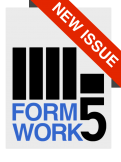It’s somewhat difficult for members engaging with the Gonski Review, the Through Growth to Achievement Report, to not scramble to a view that entails their own current and former classes. The notion of translating a high level national report to the classroom is no simple matter. The report is not (as described by Kevin Donnelly) an “attack on knowledge”.
It's rather a compelling synthesis of current educational thinking. The obstacle in moving forward is resourcing of the vision. Conceptually, with certain reservations, the plan has positives for the profession.
The student learning tool, if kept in the hands of teachers, will provide scope for the checking of standards and reflect the syllabus taught, as opposed to standardised testing.
Recommendation 10 which refers to the “creation of conditions developed” to enable collaboration, mentoring, observation and feedback will, if implemented, in terms of additional time, diminish teacher attrition rates and allow teachers the scope to manage expectations generated by AITSL, NESA and TQI.
It is difficult for members to read of individualised teaching as though it is a new phenomenon. A greater emphasis perhaps, driven by revisiting staffing formulas which currently constrain the provision of timetables, ideally should have ‘catch up’ classes as part of the standard approach, not ad hoc provisions. This would assist in achieving "one year’s growth throughout each year of schooling".
The teaching profession currently delivers profound outcomes. In NSW and the ACT significant curriculum reform is underway. In NSW (at Year 11 and 12 level) new syllabuses have been generated in English, maths, science and history with more underway. The appetite for further change is somewhat constrained.
In terms of greater teacher autonomy and utilisation of teacher professional judgement, it is difficult to envisage scope for this unless workloads are thoroughly reviewed. The ‘industrial’ model has many facets and to ignore the systems of work which deliver the 21st century learning envisaged is to miss an opportunity.
The introduction of a national Unique Student Identifier must be accompanied by provisions which ensure the integrity of the information and the accompanying privacy issues.
Accelerated progression through pay scales could be interpreted as a basis for performance based pay. Teaching at its core is a collegial activity and performance pay is an anathema to the profession.
Finally, a classroom teacher would note the steady reference to Learning Progressions as the way forward. In NSW, NESA intends to include Learning Progressions in K-10 syllabuses. They will provide additional ‘fine grain detail’ and targeted teaching strategies. The progressions are currently being trialled in numeracy and literacy.
Gonski 2.0 supports universal access to two years of quality early childhood education.
Gonski 2.0 recognises the importance to two years of quality early childhood education in laying the foundations on a child’s future performance and achievement at school. “Investing in early childhood education is generally more effective and economic than trying to close the developmental gaps later.” On behalf of early childhood teachers, the IEU now calls on the federal and state governments to fully fund two years of early childhood education for all Australian children.
The Gonski 2.0 report relied on the findings of the Lifting Our Game report which was commission by all states and authorities and released in January this year https://docs.education.gov.au/system/files/doc/other/662684_tgta_accessible_final_0.pdf
As always the ‘devil will be in the detail’ and the implementation of the review. A seminal report – yes. An opportunity – yes. Let the teaching profession be an integral part of the process – yes.










































































































































